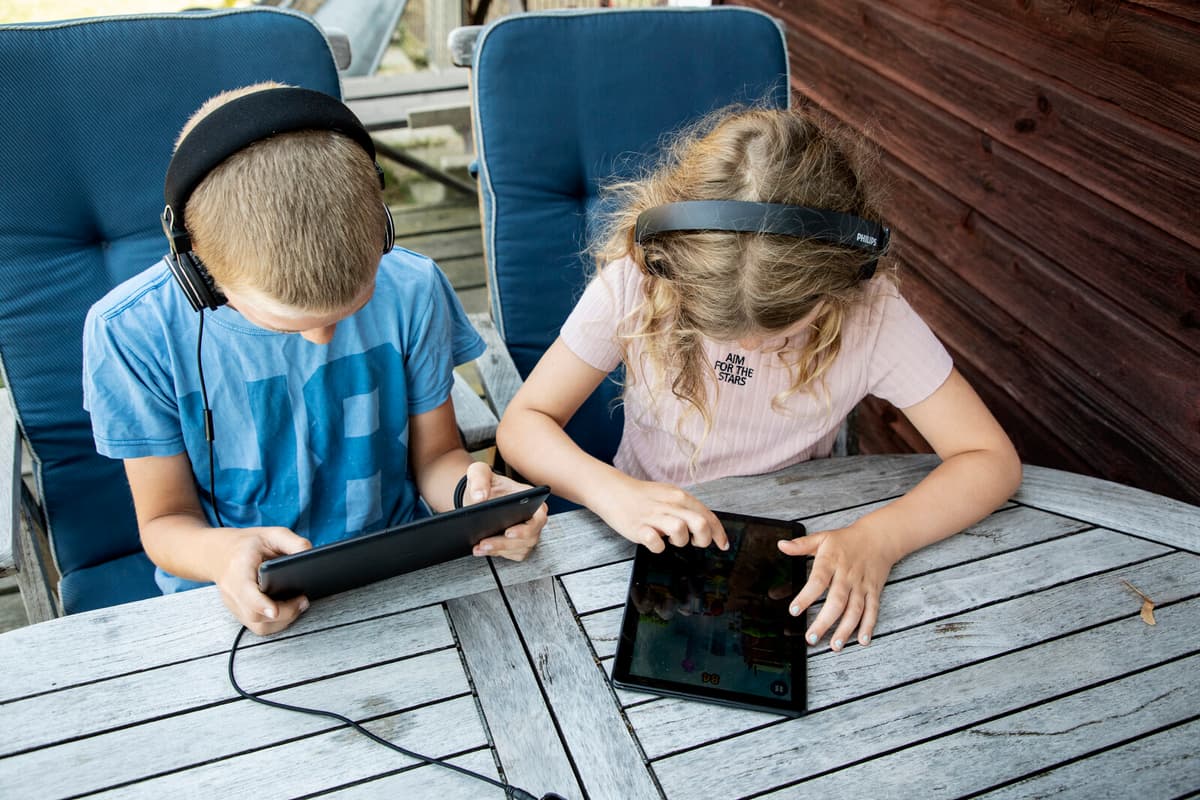88 percent of 15-17-year-olds in the study have more screen time than the Public Health Agency's new recommendations. And the more screen time, the worse the well-being.
We have a more dependent generation. The negative impact is obvious. But it's not so easy to say that you can just take away screen time, says Amir Pakpour, professor of clinical science at the School of Health and Education at Jönköping University.
The study, which was conducted in collaboration with Region Jönköping County and is based on responses from 5,323 young people in 2023, shows, among other things, that those who have a lot of screen time sleep worse and feel more stressed than their peers who have less screen time.
Different help
Pakpour and Gunilla Björling, professor of health and care sciences, who is also behind the study, say that the impact of screens on young people's health is clear, but exactly how a solution can be designed for the individual is more difficult.
We need to tackle young people's screen time in different ways. We can't help those who play too much with the same tools as we need to help those who use social media too much, says Björling.
The existence or non-existence of screens in both school and leisure time has been a long and partly infected debate. When the Public Health Agency presented new guidelines for screen time in different ages at the beginning of the month, the agency received criticism for there being too little research support for the new guidelines.
Pakpour and Björling say that the causal link between screen use and poor well-being is difficult to establish based on the study and that more research is needed.
Not the only cause
They receive support from sociologist Henrik Pallin, who has written books about young people's internet use
We're not saying that a depressed person is dependent on their bed just because they spend most of their time there. We don't know how badly these young people would have felt without screens.
When it comes to accountability, both Pallin, as well as Pakpour and Björling, point to parents - but also other actors.
It's not possible to abdicate parental responsibility just by saying that Tiktok has made an algorithm that makes my child dependent on the screen, says Pallin.
Being involved as a parent is a major advantage. In that way, parents' role is more important than the school's, says Björling.
Advertisement
Lifestyle is shaped more at home, so parents have a greater challenge to make this work. But it's also everyone's responsibility. Tech companies have a social responsibility, they can't just create something that's addictive and then not take the consequences of it, says Pakpour.
The survey that the study is based on was conducted in the fall of 2023 and included 5,323 young people in the ages of 15-17 in Jönköping County.
In the group with a lot of screen time, more than the Public Health Agency's recommendations, the study shows that:
57 percent get less than eight hours of sleep.
27 percent sit for long periods without being physically active, so-called sedentary behavior.
46 percent have difficulty falling asleep.
39 percent exhibit impulsive behavior.
44 percent experience physical pain, such as headaches, back pain, and stomach pain.
13 percent show signs of gaming addiction.
51 percent feel stressed or upset.
18 percent feel mentally unwell.
Source: School of Health and Education at Jönköping University, Region Jönköping County.
The Public Health Agency's new recommendations for screen time for children and young people:
0-2-year-olds: Ideally no screen time at all.
2-5-year-olds: Maximum 1 hour.
6-12-year-olds: Maximum 1-2 hours.
13-18-year-olds: Maximum 2-3 hours.
+ The recommendations concern leisure-time use, such as social media, video clips, movies, TV, and computer games.
+ However, music listening, podcasts, e-books, and school-related screen use are not included in the time limits.






